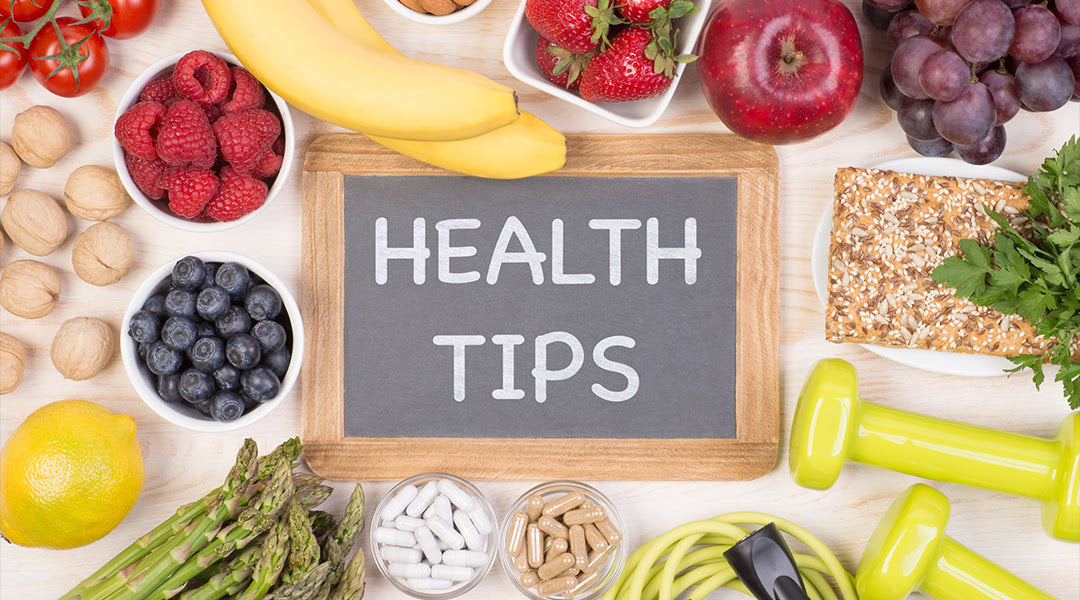
Dr. Charles’ Health Tips For The Holidays
It’s the most wonderful time of the year…a time for family, festivities, and inevitably, feasting.
Throughout this season, there’s so much to enjoy, and if you’re like me, that includes sweets or desserts, starches or carbs…you know, all those things that are certainly not in short supply right now.
Unfortunately, regularly sampling all these festive favorites also makes gaining fat a part of the traditional holiday season. And over the years, I’ve personally battled holiday weight gain - you know, from enjoying all the foods specific to this season.
So, to combat these unwanted gains, I’ve come up with 3 super simple, easily incorporated, rules to keep the holiday muffin fluff under control while still enjoying yourself.
What are these 3 tried and true rules to avoid packing on unwanted pounds throughout the holidays, you ask?
Well, it all comes down to percentages, planned feeding, and protein. And today, I’ll detail each of these individually, giving you all the tools you need to savor the tastes of the season without compromising your health or expanding your waistline!
Rule #1 - 80/20 Eating (Percentages)

It has always amazed me how much food is incorporated into our lives, specifically in how it’s linked to our emotions.
Think about the power of a single flavor or aroma.
A familiar scent or taste can immediately bring to your memory any number of moments you’ve shared with friends or family.
Just the mention of certain dishes can help you recall similar ones you’ve tried with loved ones, even prompting you to think of restaurants or recipes you’d like to try as well.
The thing is, these memories, even these emotions, they’re important aspects of your overall health. That’s why completely depriving yourself of the foods you love can take away from these pleasant experiences and memories.
And, barring any major physical complication, such deprivation can actually be stressful, even detrimental to your overall health.
Stress alone can increase your risk of mental and physical health issues, including anxiety, depression, digestive problems, headaches, heart disease, physical pain, sleep disturbances, and weight gain, the very thing we’re seeking to avoid by depriving ourselves of such foods throughout the holiday season.
So, for all of these reasons and more, this is why I live my life, including throughout the holiday season, abiding by the 80/20 rule.
Simply explained, following the 80/20 rule means I eat healthy 80% of the time, and in the remaining 20%, I eat whatever I want, which includes all of my favorite seasonal sweets, starches, and more.
In other words, this 20% allows you to enjoy all of those tempting, sinfully delicious, favorite tastes and treats in moderation…without overdoing it.

So then, how do you eat following the 80/20 rule?
Step #1: Be familiar with your healthy food choices.
For the most part, we’re creatures of habit. This means that you know your healthy food favorites.
In fact, I’d venture to say you have a handful of simple food items or healthy recipes you enjoy on a regular basis…you know, your go-tos.
So then, especially throughout the holiday season, keep these items stocked. Make sure to always have these ingredients on hand so you can readily prepare a healthy meal or enjoy these foods individually.
Having these items on hand, or better yet, prepped and ready to use, takes any guesswork out of it. Then, you won’t have to think, you can just sip, eat, savor, and enjoy these healthy items whenever you want or need them.
Step #2: Plan ahead.
For the most part, you know when you’ll be having your treats, feasts, parties, or times out on the town enjoying a meal.
So, mark your calendar and eat all of your favorite healthy, delicious meals and snacks up to and around those planned feasts, parties, etc.
Then, when you’re out, enjoy yourself!
Planning ahead and eating like this should still give you some space to have a couple “cheat” or 20% meals or snacks throughout the week as well.
And, that’s it! Incorporating the 80/20 rule is truly just practicing some preparation and planning, still eating healthy most of the time which allows you to indulge in moderation.
In the end, you’ll still be savoring some of your favorite, even most memorable flavors/experiences without packing on unwanted pounds or hindering your overall health in the process.
Rule #2 - Intermittent Fasting (Planned Feeding)

Intermittent fasting can sound daunting for some folks.
Fasting?? You mean not eating at all…you mean starving yourself?
I mean, fasting does mean not eating. But, it’s certainly not that dramatic.
In fact, we all do this each and every day.
Specifically, we all do this each night as we sleep. Then, upon waking, many choose to eat breakfast. Or, to split that word up to understand its full meaning, we break our nightly fast.
By definition, intermittent fasting is simply an eating plan that shifts between fasting and eating on a planned schedule. For instance, if you follow a 16/8 intermittent fasting schedule, you would fast for 16 hours, then you’d use the remaining 8 hour window to eat normally (not over indulging).
My preferred way of incorporating intermittent fasting is to skip that first meal upon waking, thereby intentionally extending a normal nighttime fasting window by several hours.
For a glimpse at what this looks like - if you stop eating at 8 pm, fall asleep at 10 pm, wake up at 7 am, then do not eat a meal until noon, you’ve fasted for 16 hours. Then, your “feeding window” would last from noon until 8 pm, when you’d start your fasting time all over again.
This method, following the 16/8 pattern with 16 hours of fasting and 8 hours of feeding, is the most common plan people follow.
For me, I view this as simply skipping breakfast.
However, if you know me, you know I absolutely do not skip the opportunity to enjoy a cup of coffee during my fasting window.

I also enjoy boosting my brew during this time by adding collagen, MCT oil, and a small splash of heavy cream. To break these additions down:
- Collagen is low in calories so many view this as acceptable to have during a fast, and it keeps you feeling full while providing needed energy.
- MCT oil is easily absorbed, so it not only benefits your body, it also won’t reverse the health benefits of your fast either.
- One tablespoon of heavy cream contains a very low amount of net carbs. This amount most commonly does not spike insulin levels meaning it also does not break a fast.
Now, combine intermittent fasting with the 80/20 rule.
By doing this 80% of the time, you can still enjoy an indulgent holiday breakfast feast without feeling guilty!
*NOTE: Some people go through a transition period when they start intermittent fasting, especially if they’re used to eating breakfast each and every day. In these instances, when a person who routinely eats breakfasts begins to skip this meal, they may feel hungry, irritable, or even light headed due to blood sugar fluctuations, etc.
Know that this is normal and may take a few weeks to resolve.
When you incorporate drastic changes to your diet, such as this, you will likely experience a period of adaptation.
This does not typically mean that the healthy change you're incorporating won’t work for you simply because you’re feeling uncomfortable at the moment. It just means that your body is going through a period of figuring out how to adapt to these changes.
The benefits of intermittent fasting are vast, including protection against chronic diseases, improved physical performance and memory, weight loss, a longer life span, and more.
These benefits await you on the other side of any temporary discomfort you may be going through during the transition into intermittent fasting. However, to help with this transition, you can simply add electrolyte drops to your water or coffee, such as Everlo drops, or use an electrolyte powder.
Rule #3 - Protein First

Protein is a crucial macronutrient, and it’s highly satiating which means as you eat it you’ll feel full faster and keep feeling full for longer periods of time.
Throughout the holiday season, and all throughout the year, this can help you stick to your goals, avoid overindulging, and keep unwanted weight gain at bay.
Aside from keeping you feeling full though, protein serves your body in many ways…
- Protein aids in muscle building and maintenance. Because proteins are the building blocks of muscle tissue, they not only help in the growth of new muscles, they also help repair damaged muscle tissue post-exercise or injury.
- Did you know that some proteins function as enzymes as well? In doing so, they work to speed up needed chemical reactions within your cells.
- Proteins are also involved in the creation of some hormones. Insulin, for example, is a protein hormone many of us are familiar with as it regulates blood sugar levels.
- Your immune system also functions optimally through protein intake as proteins form antibodies which help your immune system identify and neutralize harmful substances such as bacteria and viruses.
- Proteins also transport and store essential substances within your body such as hemoglobin and iron. Proteins like hemoglobin transport oxygen throughout your body, while others like ferritin store essentials substances like iron.
- Proteins are needed to provide structure and support for cells and tissues. For instance, collagen is a protein that provides structure to your hair, skin, nails, and connective tissues.
- Also crucial for signal transmission within your body, proteins participate in signaling pathways, transmitting signals both within a cell and between cells to ensure proper communication and response to stimuli.
- You need protein to use nutrients from all of the foods you eat. As proteins are involved in the digestion and metabolism of food, they work to help break down the nutrients in the foods you eat into forms your body can use.
- While protein isn’t a primary source of energy, proteins can be broken down to produce energy, especially in the absence of sufficient carbohydrates and fats.
- Proteins like fibrinogen and thrombin play a crucial role in the blood clotting process, helping to prevent excessive bleeding.
- Did you know that proteins even play a vital role in the balance of fluids within your body? Proteins maintain the body’s fluid balance, ensuring that fluid levels within and outside cells are balanced.
- In order for your cells to function normally, your body must maintain balanced pH levels. Proteins act as a buffer to maintain this needed balance.
To ensure I’m getting all of the above listed benefits, I personally prefer a clean source of animal protein for the following reasons…
Amino Acid Profile

Animal proteins are often considered more nutritionally complete because they provide all nine essential amino acids that the human body cannot produce on its own. Many plant proteins, on the other hand, are deficient in one or more essential amino acids.
Bioavailability
The bioavailability of protein refers to the extent and rate at which the amino acids are absorbed and used in the body. Animal proteins generally have higher bioavailability compared to plant proteins.
Protein Digestibility
Animal proteins are usually digested more efficiently than plant proteins. This can be beneficial for individuals requiring higher protein intake for muscle building or recovery.
Nutrient Density
Alongside protein, animal sources often provide other important nutrients like B vitamins (especially B12), iron, zinc, calcium, and omega-3 fatty acids in bioavailable forms. While plant proteins can also provide these nutrients, the bioavailability may be lower, or additional sources may be needed to meet dietary requirements.
And, now that we’ve covered the benefits and types of protein, how should you incorporate this in your day to day eating plan?
Ideally, you want to consume 1 gram of protein per pound of body weight. So, if you weigh 150 pounds, you’ll want to consume 150 grams of protein each day.
Now, I realize many folks think this is completely unattainable, however, it’s not as difficult as you may think.
First, eat your protein first at each meal. This will automatically help you avoid eating too many carbs or fats.
Next, supplement with a good, high quality essential amino acid protein powder, such as Fortagen (affiliate link here).
If consuming this amount of protein daily seems daunting, or especially if you are a vegan, supplementing with an essential amino acid protein powder is highly beneficial.
I personally use Fortagen because it was scientifically formulated with the proper ratio of Essential Amino Acids to be the most bioavailable for your body.
10 grams of this particular protein powder (1 scoop) provides you with 50 grams of protein, making this an easy way to hit your daily protein goal.
And once again, seek to incorporate the 80/20 mentality with protein intake as well. In other words, hit your personal protein goal 80% of the time, then 20% of the time, eat however you want…enjoy yourself!
Quick Recap

I know we’ve covered a lot of ground here today, so to recap quickly, just remember these three rules to maintain health and avoid holiday weight gain:
Rule #1: Follow the 80/20 rule. Eat healthy 80% of the time, and 20% of the time, eat whatever you want.
Rule #2: Implement intermittent fasting. Follow a scheduled eating and fasting pattern where you fast for a set amount of hours per day, only eating during your feeding window. For example, stop eating at 8 pm, sleep overnight, then don’t eat your first meal until noon. This allows for 16 hours fasting and 8 hours eating.
(Remember, if you’re like me, I can’t go without my daily cup of morning coffee, so I still add a quality collagen powder, MCT oil, and a splash of heavy cream in my morning cup. Then, I break my fast around noon.)
Rule #3: Eat protein first at each meal to cut back on carb intake and to keep yourself feeling full longer.
Also, remember to source high quality protein to obtain all of this mighty macronutrient’s benefits, and consume 1 gram per pound of body weight daily. (150 grams of protein for a person who weighs 150 pounds.)
By following these three rules you’ll kick those holiday pounds to the curb!
Check out Lifeboost Coffee MitoCreamer.
Medical Disclaimer
This content is for informational and educational purposes only. It is not intended to provide medical advice or to take the place of such advice or treatment from a personal physician. All readers/viewers of this content are advised to consult their doctors or qualified health professionals regarding specific health questions. Neither Dr. Charles Livingston nor the publisher of this content takes responsibility for possible health consequences of any person or persons reading or following the information in this educational content. All viewers of this content, especially those taking prescription or over-the-counter medications, should consult their physicians before beginning any nutrition, supplement or lifestyle program.

Dr. Charles Livingston, owner of Lifeboost Coffee, is known for his premium organic coffee brand. With a focus on health benefits, fair trade, and sustainable practices, he has established a reputation for delivering exceptional quality and socially responsible coffee options to conscious consumers.
- https://www.apa.org/topics/stress/health
- https://www.hopkinsmedicine.org/health/wellness-and-prevention/intermittent-fasting-what-is-it-and-how-does-it-work
- https://www.amandean.com/blogs/news/collagen-intermittent-fasting-101-does-collagen-break-fasting
- https://tanasi.com/blog/does-mct-oil-break-a-fast/
- https://www.autumnellenutrition.com/post/does-heavy-whipping-cream-break-a-fast-intermittent-fasting-tips
- References for the article to confirm data and information.









